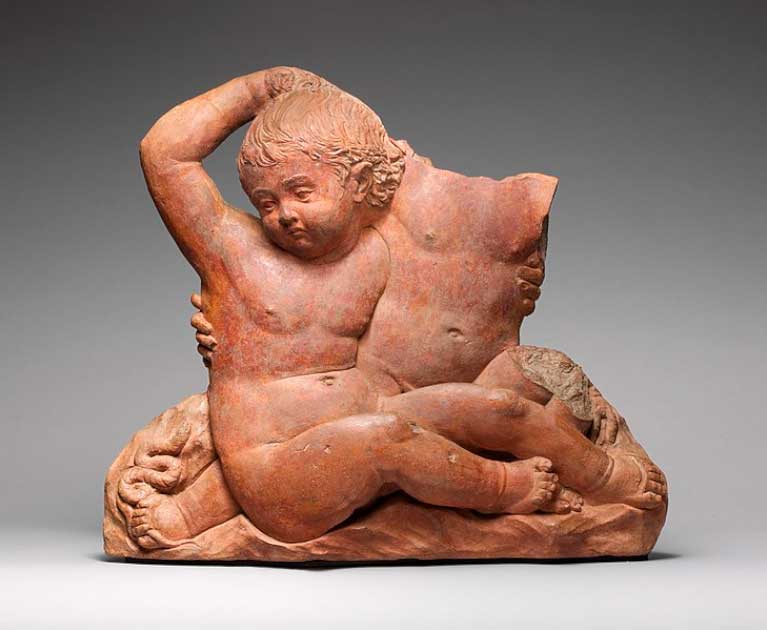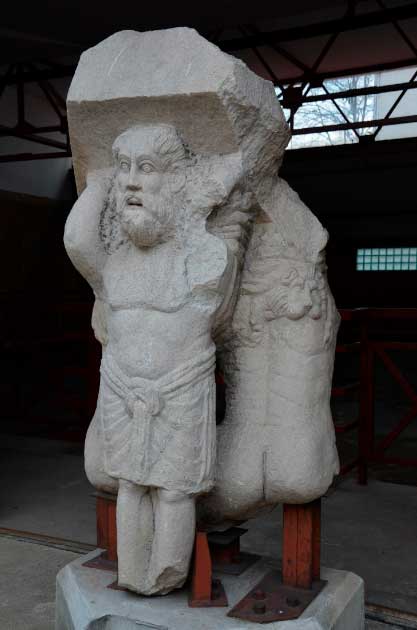Greek Mythology is filled with widely known heroic figures. There is for example Prometheus, who stole fire from the gods and gave it to the mortals on earth. Sentenced to remain chained on a rock while an eagle picks and eats his liver for eternity.
Who could forget Achilles? The protagonist of Homer’s Iliad was one of the greatest warriors of his time. A demigod who only had one weakness; his heel. We still talk about “Achilles heel” when it comes to recognizing a point of weakness in ourselves.
Then there is perhaps the most iconic heroic figure of all Greek mythology, the star of hundreds of myths, Heracles. A demi-god who is synonymous with superhuman strength who earned his immortality through a series of twelve deadly labors/trials. Be it from the Disney movie Hercules or from your time in school studying Greek mythology; everyone knows this mythical strongman.
Now imagine what life would be like if your older brother was Heracles. How could you ever compare to a literal demi-god? It is hard to imagine being the younger sibling of one of the greatest Greek heroes, but for one man, that was his life.
His name was Iphicles, and if you haven’t heard of him or can recall any mythological tales he was in, you aren’t alone. Iphicles was the younger brother of Heracles, who was so easily overshadowed by his big brother that he has been erased from many tellings of Heracles’ origins.
Excluded from film adaptations and barely mentioned today, nobody seems to remember Hercules having a sibling. Who was Iphicles, and did he accomplish anything, or was he doomed to remain hidden, eclipsed by his heroic brother?
Iphicles
Iphicles (sometimes spelled Iphiclus) was the twin half-brother of the Greek hero Heracles. Trust me, that can make sense: Iphicles’s parents were his mother, Alcmene, and his human father, Amphitryon.
Heracles’s mother was Alcmene, but his father was Zeus. Zeus disguised himself as Amphitryon, who “returned early from war” and did what Zeus was well known for, cheating on his wife Hera. Alcmene had no idea it was Zeus and only realized something was wrong when her husband came home from the war much later that day.
Alcmene experienced superfecundation or the fertilization of two or more ova by different sperm. It is a rare condition, and twins can be born of separate fathers in the real world, not just in mythology.
- An Ancient Hero: Who was the Griffin Warrior of Pylos?
- Dictys of Crete: Was There a War Reporter at the Siege of Troy?
Iphicles was the “younger twin” born one night after Hercules. The twins also had a sister, Laonome, she was the sibling of Iphicles and the half-sister of Heracles. Iphicles and Laonome were both fathered by Amphitryon.

After learning about Zeus’s tryst and (another) new baby, Zeus’s wife Hera sent snakes into the infants’ cradle to kill them. Iphicles was terrified of the snakes, but the baby Heracles saved his brother, and himself, by strangling the snakes. Even at this early stage Iphicles was pushed from a starring role.
It is challenging to make a clear map of the Greek pantheon of gods’ family trees, meaning it is tricky to follow the branches to determine if someone’s child was immortal. Iphicles was human, while his twin half-brother was an immortal demigod because of who their fathers were: a human and Zeus.
What complicates things is that their mother, Alcmene, was not the average Greek woman to whom Zeus took a fancy. Alcmene’s grandfather was the demi-god Perseus, and if your knowledge of the genealogy of Perseus is a little rusty, he was said to also be one of Zeus’s sons.
It seems that in the case of Heracles and Iphicles, the father’s genes were the strongest, which left one child a demigod and the other a normal human child. Once again, sucks to be Iphicles.
The Lesser-Known Brother
Both Heracles and Iphicles grew to be robust and brave men. The spotlight was on Heracles since birth, but Iphicles wasn’t a weak man. Although this had limits, and of course Iphicles was not able to match the god-enhanced strength of Heracles.
The two twins were close and had a good relationship. Iphicles went on some adventures and quests with Heracles. One such time Iphicles joined his brother was when Heracles went to Troy because King Laomedon refused to give Heracles the mares he was promised. Iphicles and a buddy Telamon were sent into the city by Heracles to take the horses, but they got caught and wound up in prison.
Did Heracles help his brother and friend? Nope. King Laomedon’s son, who felt like his father was in the wrong for backing out of a promise to a demi-god, sent two swords to Iphicles and Telamon in their prison cell and informed the prisoners that his father was going to try to kill Heracles.

Iphicles and Telamon killed the prison guards and raced back to Heracles to tell him about Laomedon’s plans. Together the men visited the king and, as you might have guessed, killed him.
Iphicles also took part in the Calydonian boar hunt. The goal of the hunt was to slay the Calydonian boar that Artemis sent to the Calydon region in Aetolia, which was destroying everything in its path.
- Preserving Greek Myth: Who Were the Vatican Mythographers?
- Narcissus Myth: Early Poets and the Ancient Story
The hunting party featured many of the well-known Greek mythological heroes like Castor (son of Zeus and Leda), Dryas of Calydon (Arie’s kid), Echion (an Argonaut and son of Hermes), and Iolaus. Iolaus was the son of Iphicles and was Heracles’ charioteer and assistant. He helped his uncle during his labors and later became an Argonaut, joining Hercules on Theseus’s famous voyage.
Iphicles also accompanied Heracles on more than a few of the 12 labors and was present when Heracles finished the final labor. Heracles had to capture the three-headed dog Cerberus from the Underworld and bring the dog to King Eurystheus, the man who had tasked Hercules to complete each of the labors.
When Cerberus was presented to Eurstheus, he demanded that Iphicles, Heracles, and their mother, Alcmene, leave Tiryns. Being sent away from Tiryns is how Iphicles found his way to Arcadia and took part in the battle against the Hippocoon of Sparta with his twin brother.
Iphicles’ Other Children
Iolaus was Iphicles’s son with his first wife, Automedusa. Iphicles was also the father of two children he had with Pyrrah, daughter of Creon, the ruler of Thebes (Oedipus’s uncle). Anyone familiar with Heracles knows that Hera made him insane, and in his madness, he killed his three children and wife, Megara.
What often gets overlooked is what happened when Heracles was driven insane by Hera a second time. What he did would change Iphicles’s life forever. In his second round of madness, Heracles threw his brother’s children into a fire, where they died.
Unlike most people who would be angry that his brother killed his two children, Iphicles was able to forgive his brother for his actions: her recognized that Hercules had been driven to madness by the vengeful Hera, and was able to find compassion for his brother through his grief.

There are two different accounts of the death of Iphicles. The more well-known story was that Iphicles was killed during the battle against the Hippocoon of Sparta. Heracles was so devastated by the death of his twin brother, that he voluntarily went into exile, shutting himself off from the world.
The second account of the death of Iphicles has him being wounded while fighting in the first battle of Heracles against the Augeas and Elans. Iphicles fainted due to his wounds and one of his relatives carried the unconscious and injured man to his sister’s home. He was cared for well but unfortunately died from his injury.
When he died, he was buried and presented with a heroum. A heroum ( Latinized from the Greek heroön or heroon) is a shrine dedicated to an ancient Greek or Roman hero, and people can come to worship or pay honors to the deceased warrior. He might not have been as well known as his brother Heracles, but he still was recognized as a hero in the end.
Top Image: Hercules and Iphicles, two extremely muscular children, fighting with snakes send by Hera to kill them in their cradle. Source: FRANÇOIS LENORMANT / Public Domain.